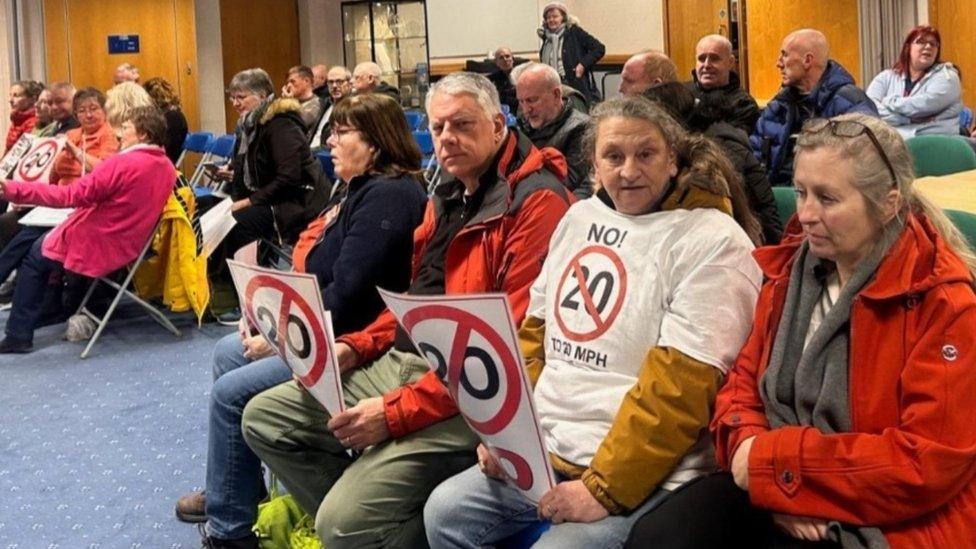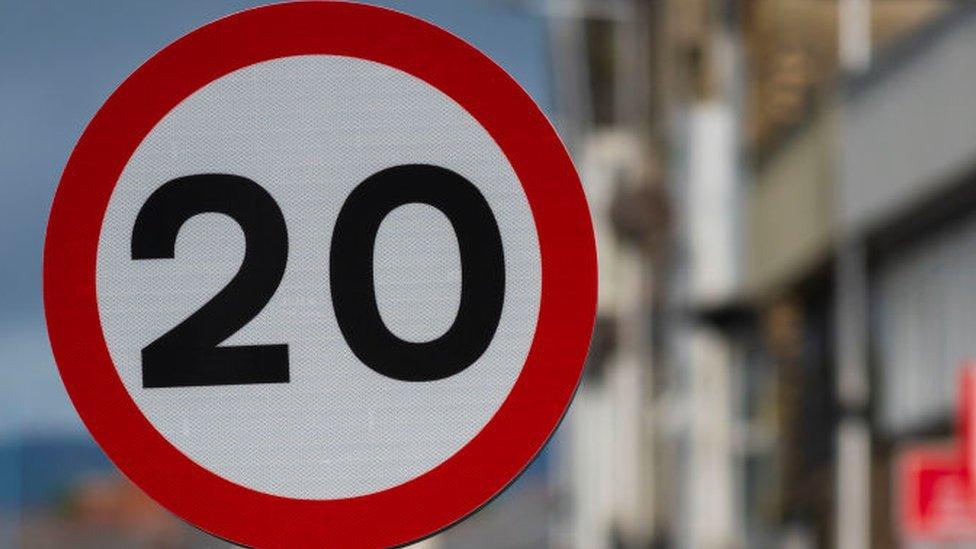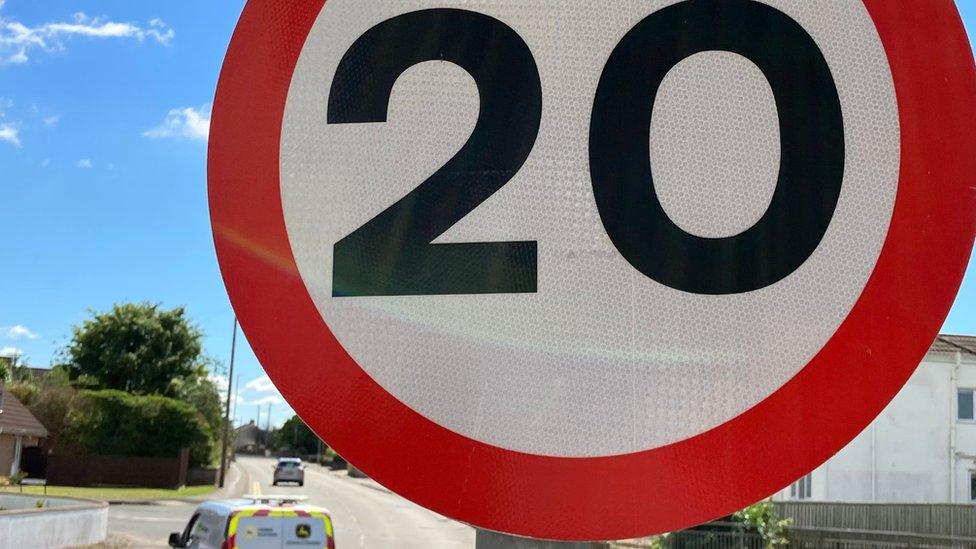Conwy 20mph consultation would see residents asked on speed limits
- Published

Residents attended a council meeting calling for changes
Residents could be asked which roads are changed from 20mph back to 30mph in a public consultation.
The Welsh government has reduced the default speed limit to 20mph (32km/h) in Wales, but councils can decide if roads that meet certain criteria are made exempt.
Residents attended a Conwy council meeting, with a Conservative councillor presenting a petition.
It was recommended the cabinet considers a pubic consultation.
Gogarth councillor Louise Emery said: "Conwy had guidance from Welsh government to engage with the public before it (the new limit) came in, and they chose to ignore that guidance, and I think that's what has made Conwy residents even more angry than other parts of north Wales."
She handed in the petition at an economy and place overview and scrutiny committee, external.
It was recommended that the cabinet considers a public consultation to decide which roads in the county, not exempt under Welsh government legislation, can be put back to 30mph.
But this would not take place until the Welsh government issues new guidance to local authorities on which roads should be exempt, according to the Local Democracy Reporting Service.
Last month, the new speed limit came into force across Wales after the "initial bedding in period."
Ms Emery said she will now work with cabinet member for roads Goronwy Edwards on readying proposals to be put before cabinet.
Welsh government ministers said a 20mph (32km/h) limit would reduce deaths and noise and encourage people to walk or cycle.
First Minister Mark Drakeford said it would "keep people from losing their lives".
"It's going to take you a minute longer to make your journey, and we will save 10 people's lives in Wales every year as a result of that one minute contribution - it doesn't seem an unfair bargain," he said.
The Welsh government said the £32.5m price tag was "outweighed" by reduced impact on the NHS and emergency services, which one study said could save £92m a year.

BINGE-WORTHY DRAMAS: Amazing worlds and spectacular stories, all filmed in Wales
THE CRASH DETECTIVES: Every serious incident on the road requires forensic examination

Related topics
- Published17 September 2023

- Published23 April 2024

- Published7 January 2024
